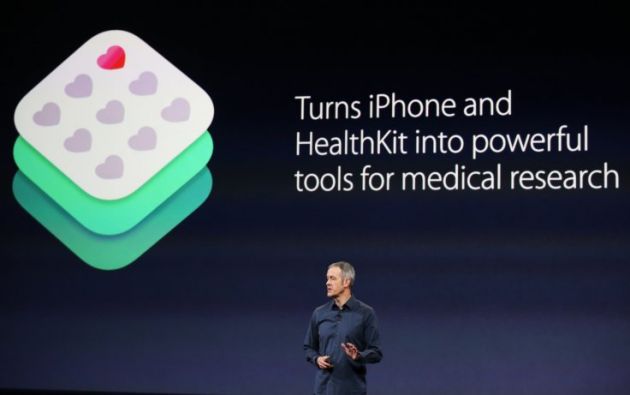Apple's iPhone apps will allow users to collect DNA data through their phone for medical treatment and research
Apple is launching apps that will allow iPhone owners to get their DNA tested and the data will be used by researchers to identify how some people are affected by certain diseases and how they can be best treated. This means that someday, iPhone owners could carry their entire DNA make up in their pockets to check against prescription drugs at the pharmacy or show it to their doctor.
Apple has been foraying into the health and medical sectors with its HealthKit and has been also partnering with leading hospitals in the US for collating data and providing timely diagnosis to patients. In early March this year, Apple had unveiled its ResearchKit suite, which helps hospitals or scientists run medical studies on iPhones by collecting data from the devices' sensors or through surveys. Apple will now serve apps for collecting medical data of iPhone users to help researchers develop future treatments. The DNA tests will be conducted in labs approved by Apple, and the data will be hosted on servers controlled by scientists. However, iPhone users will also be able to access some of the data on their devices after the testing has been completed.
According to Apple, using its new Research Kit software, the iPhone will store the owner's DNA data, which can not only help them avoid medicines producing allergic reactions, but also discover their relatives, and provide scientists and medical researchers with a huge database of human DNA for research purpose. Until now, Apple has demoed five apps for the ResearchKit, namely Parkinson's, breast cancer, diabetes, asthma, and heart health.
Apple plans to conduct two studies, one with the University of California, San Francisco, and the other with Mount Sinai Hospital in New York, for collecting and testing DNA through iPhone apps. Apple hopes to present the results of both the DNA-based studies at the Worldwide Developer Conference (WWDC) show beginning in San Francisco on June 8.
